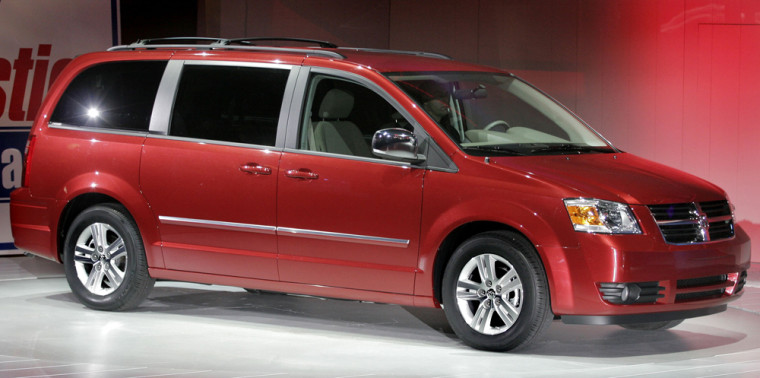Ever considered buying a Lamborghini or Ferrari? Now could be your last, best chance to get a deal. Increased production of exotics since the late 1990s has created such a glut in today's recessed economy that resale prices are (somewhat) competitive.
"[The recession] has really created a good value opportunity because you can get a lot of car for your money," says Steve Burks, marketing director at Motorcars International in Springfield, Mo. "Used-car sales are really strong right now — it is a buyer's market."
Fortunately, the same rule applies to people looking for everyday cars as well. Used-vehicle registrations have declined 7.3 percent year-to-date, down an average of 286,000 units each month, according to Experian Automotive, a Schaumburg, Ill.-based analysis and consulting firm. New-car registrations are down 34.8 percent or an average of 430,500 units each month.
Consider the Honda CR-V or Lexus ES — they're two of the best used-car buys on the market today. But avoid the Chrysler Sebring convertible and Dodge Grand Caravan — they're two of the worst.
To compile our list of the best and worst used cars, we consulted reliability data from Consumer Reports and residual value data from Cars.com and Kelley Blue Book. We used Consumer Reports' Best and Worst Used Cars report — reliability ratings culled from 1999 to 2008 — to isolate which cars the agency rates as the most- and least-reliable models sold.
To pare down the list, we evaluated each 2009 model's two- and five-year residual values. Residual value is what percentage of the manufacturer suggested retail price a vehicle retains after a given amount of time. We then separated out our winners and losers by evaluating trade-in values for model years 1999 (unless a model debuted in a later year, which we used instead) and a middle year, such as 2004 or, if available, 2006. That gave us a good idea of how the models during the 1999-2008 span fared for consistency of value, reliability and performance.
All trade-in values assume the base engine option and trim level, automatic transmission, and 2WD unless otherwise stipulated. For 1999 models, we estimated 90,000 miles on the vehicle; for 2004 models, we estimated 71,000 miles. These are the standard mileages KBB uses to evaluate trade-in value.
Keep in mind, some of the brands on our "worst" list, such as Kia, have made high-quality vehicles that can be trusted to run for years. But the Kia Sedona, while having posted some improvement in recent years, suffered poor reviews of its electrical system, fuel system and engine.
And not every car made by Lexus or Acura — two brands mentioned on our "best" list — gets a positive review from Consumer Reports. Indeed, Jake Fisher, the senior automotive engineer at Consumer Reports, often advises buyers not to judge a single vehicle by its brand, or vice versa.
Western-U.S. drivers looking to buy a used car would do well to consider the Subaru Impreza WRX. Subaru sales are notoriously strong in Oregon, Washington and Idaho, and the Impreza sedan — both the high-performance WRX and mainline version — consistently scores better than average on Consumer Reports reliability tests. The WRX scored "better" or "much better" than average for the years 2004 and 2005; the sedan scored the same for 2000, 2005 and 2007. Any year after 2003 is rated "better" or "much better" than average for the Impreza Wagon.
Those with a less rugged lifestyle should consider Toyota's Prius, another used-car winner. It has earned "much better than average" reliability ratings since 2001 and retains almost 40 percent of its value after five years, much better than the typical 20 percent to 25 percent. James Bell, an automotive analyst for Kelley Blue Book, says the hybrid's proven reliability has bolstered the value of its used models, even though consumers were skeptical at first.
"When hybrids first came out, there was concern that you'd be seeing them along the road with melted dead batteries and that they'd be expensive to maintain, and it just hasn't proven to be true," says Bell, who bought his first Prius in 2003. "The market started to say, 'OK, this seems to be the real deal.'"
Sales of new hybrids tend to fluctuate with gas prices, but Bell says proven hybrids like the Prius will likely always have a firm place on the used-car market.
Time is of the essence, though, when it comes to cashing in on the tough economy and scoring a good deal on a used car. Experian's latest market-share report says that while used-car registrations experienced a "fundamental, sustained drop" earlier this year, they've already hit bottom.
From the dealer perspective, Burks agrees: "The used cars have really leveled, have really bottomed out, and they've even started to come back up."
